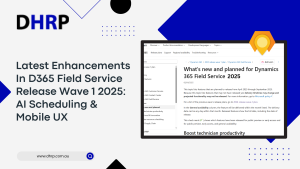An ERP system may help you save money by lowering costs, as well as increasing production and efficiency by fostering teamwork, resulting in better customer service and keeping you ahead of the competition. Aside from that, it can boost a variety of facets of your organization, from HR to finance, giving the ease of automation.
There are many reasons to adopt ERP software, but how can you know whether it’s been properly implemented? Well, there are various people telling you the steps, but hardly anyone pointing out issues in ERP implementation to learn.. But we would recommend you to look for the problems and solutions closely to avoid any errors.

Before you start implementing, you must first choose the correct ERP solution. The only issue? There are hundreds available for a selection of ERP vendors, as well as numerous ERP systems and implementation models to choose from.
With so many options, finding the one that will improve your company processes and help you achieve your corporate goals might be tough.
An ERP consultant may assist you in defining your objectives and digital strategy so that you can compare and contrast different options on the market and make an informed decision.
Most businesses fail to analyze the implementation time and process. As a result, set unreasonable deadlines.
Many consumers suggested that we approach deployment in realistic and timed steps. This will ensure that you aren’t rushing through the process and that you have enough time to properly implement each module. So, spend more time on the planning and ensure that you have an accurate scope, cost and timeline set right.
Make a list of how many members of your team (including yourself) will have access to the system. You will spend more money on ERP deployment if you have more users with access. Before estimating the charges, inquire about the usage limits with your vendor. This type of ERP is the greatest option if your firm has hundreds or even thousands of employees.
Data migration is a critical stage in a successful ERP implementation since, if done correctly, it will help you successfully simplify your processes; however, if done incorrectly, it could take a long time to fix. You should filter out everything that is superfluous or wrong before transferring all of your data into your new ERP system so that the new system is clean and accurate.
To achieve efficiency and data integrity, you must tidy up your data and convey only the most critical information.
Another challenge is to match any and all technical needs to the new ERP software, as well as determine the optimal delivery model for connecting the two. What we mean is, will it be an on-premise solution, cloud solution, or hybrid solution?
Develop a project strategy that covers every phase of the implementation process to combat this. From hardware needs through resource controls, data conversions, and data entry, to network validation, the project plan establishes a timeframe. Setting up a project plan is sensible because it serves as an implementation roadmap, laying out the processes for moving forward with the ERP system’s design phase.
The implementation of an ERP system does not end with the go-live date. Your project team should commit to closely monitoring the system after it is operational in order to resolve any issues that develop as well as new requests.
We recommend creating and measuring key performance indicators (KPIs) on a regular basis to ensure that your system is meeting and exceeding your expectations. It will become out of sync with your company’s needs over time. Also, ask as many questions as possible to your ERP vendor.
Bottom Line
This is just the shortest list of considerations. If you will research you will find tons of ERP problems and solutions to keep in mind before implementing the ERP and contacting the vendors. As Microsoft Dynamics certified experts, we at DHRP have worked with various businesses as their ERP consultant.
You can check out the latest case studies for further recommendations. Moreover, we consider the common failures of the companies and challenges of ERP implementation as well before we lay out the plan for ERP implementation of your business.
So, reach out and let your very own Dynamics 365 vendor (DHRP) guide you.





































































































